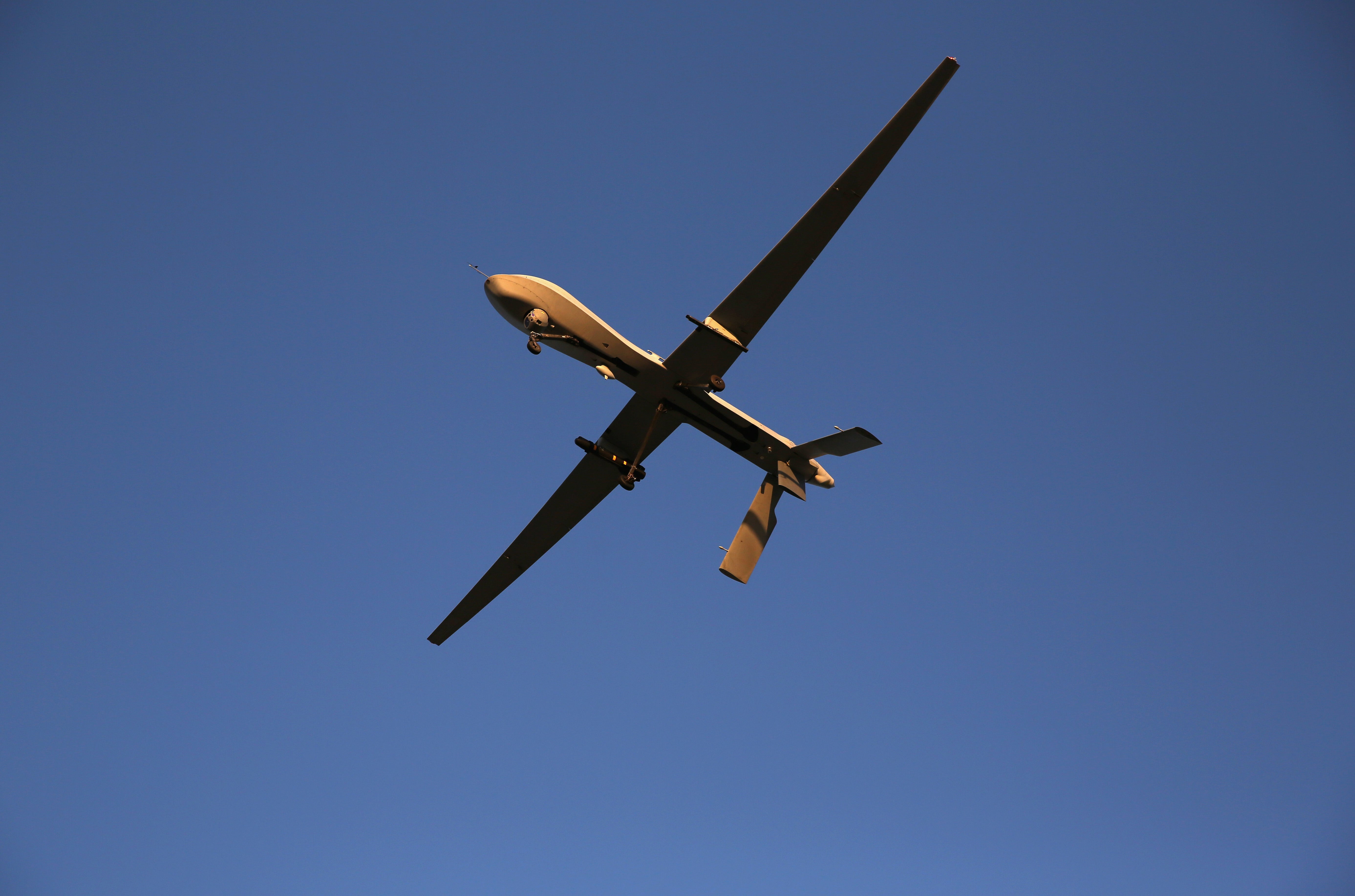Yemeni man injured by US drone strike forced to set up GoFundMe to pay for treatment
Adel Al Manthari is at imminent risk of developing gangrene and needs emergency medical care.
Your support helps us to tell the story
From reproductive rights to climate change to Big Tech, The Independent is on the ground when the story is developing. Whether it's investigating the financials of Elon Musk's pro-Trump PAC or producing our latest documentary, 'The A Word', which shines a light on the American women fighting for reproductive rights, we know how important it is to parse out the facts from the messaging.
At such a critical moment in US history, we need reporters on the ground. Your donation allows us to keep sending journalists to speak to both sides of the story.
The Independent is trusted by Americans across the entire political spectrum. And unlike many other quality news outlets, we choose not to lock Americans out of our reporting and analysis with paywalls. We believe quality journalism should be available to everyone, paid for by those who can afford it.
Your support makes all the difference.Adel Al Manthari was driving through the village of Al Uqla in Yemen with his cousins on a day four years ago when his life changed forever.
A US drone strike blasted the car Mr Al Manthari was driving in, killing three of his cousins instantly and a fourth cousin several days later in an area hospital. Mr Al Manthari survived, but with devastating injuries: his legs and arms were burned. His hip was damaged. In the years since, he’s been rendered unable to leave his home.
Now, The Intercept is reporting that Mr Al Manthari’s legs and feet have blackened — leaving him at imminent risk of developing gangrene and potentially dying.
Mr Al Manthari, like his four cousins, was a civilian not in any way connected with military efforts in war torn Yemen, where the US since the Barack Obama administration has been supporting Saudi Arabian-led efforts to win the country’s civil war.
Despite Mr Al Manthari’s civilian status, however, the US Department of Defense has not intervened to support him or his family — despite the fact that the US drone attack is directly responsible for his injuries, and, according to a GoFundMe page set up by Nick Mottern and Kathy Kelly, co-coordinators of the organisation Ban Killer Drones, forced his two daughters to leave school to care for him.
Because the Pentagon has declined to acknowledge the attack that has left Mr Al Manthari fighting for his life or allocate any of the millions of dollars Congress has set aside for civilian victims of US combat operations, Mr Al Manthari has had to try to crowdsource funding for an emergency medical procedure he needs in Egypt.
In its first 12 days, the GoFundMe account met its goal of raising $10,000 for the operation from 124 donors. It has now extended its goal to $15,000 to provide Mr Al Manthari post-surgical care. Mr Al Manthari must travel abroad for the operation, which is not available in Yemen.

“It was the US’s Hellfire missile that cost Adel his family and his health,” human rights laywer Jennifer Gibson told The Intercept. “It should be the US that pays for the treatment to save his legs. That’s what responsible governments do. They own up to their mistakes.”
Mr Al Manthari’s case is not the only one in which a civilian victim of a US drone strike has not recieved aid ostensibly intended for them. The non-governmental organization CODEPINK has reported that some $40 million intended for Pakistani victims of US operations went to various non-governmental organisations and not victims and their families. The Department of Defense said that it did not make any payments to civilians killed in 2020.
And that’s just accounting for the civilian casualties the US acknowledges. Though Secretary of Defense Lloyd Austin has said that he is committed to transparency and accountability in regards to civilian casualties and this week ordered the military to improve the way it assesses civilian harm, the US has historically undercounted civilian injuries and deaths resulting from its military operations.
American involvement in Yemen has been a target of progressive and anti-interventionist activists and politicians for years. In 2019, the Senate and House of Representatives passed a resolution championed by Senators Bernie Sanders of Vermont, Chris Murphy of Connecticut, and Mike Lee of Utah to end the country’s role in the war, only to see it vetoed by President Donald Trump.
Joe Biden began his presidency by announcing that he would end US involvement in Yemen, but then backtracked. Arms sales to Saudi Arabia have continued, while Mr Biden may meet with Saudi Arabian crown prince Mohammed bin Salman as soon as next month.

Join our commenting forum
Join thought-provoking conversations, follow other Independent readers and see their replies
Comments